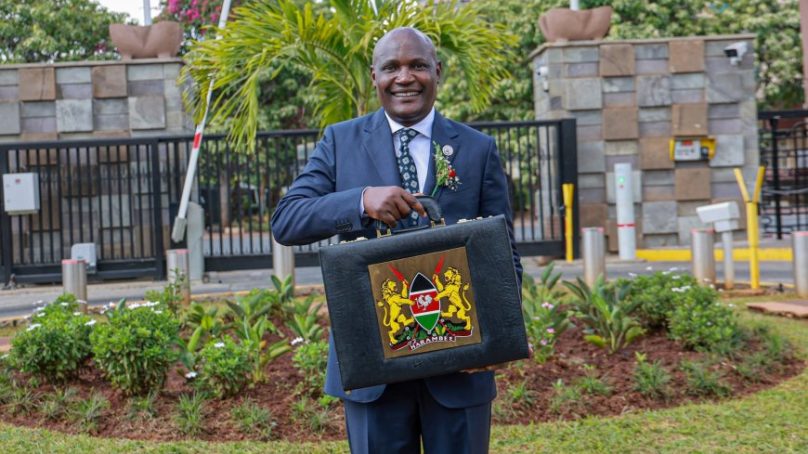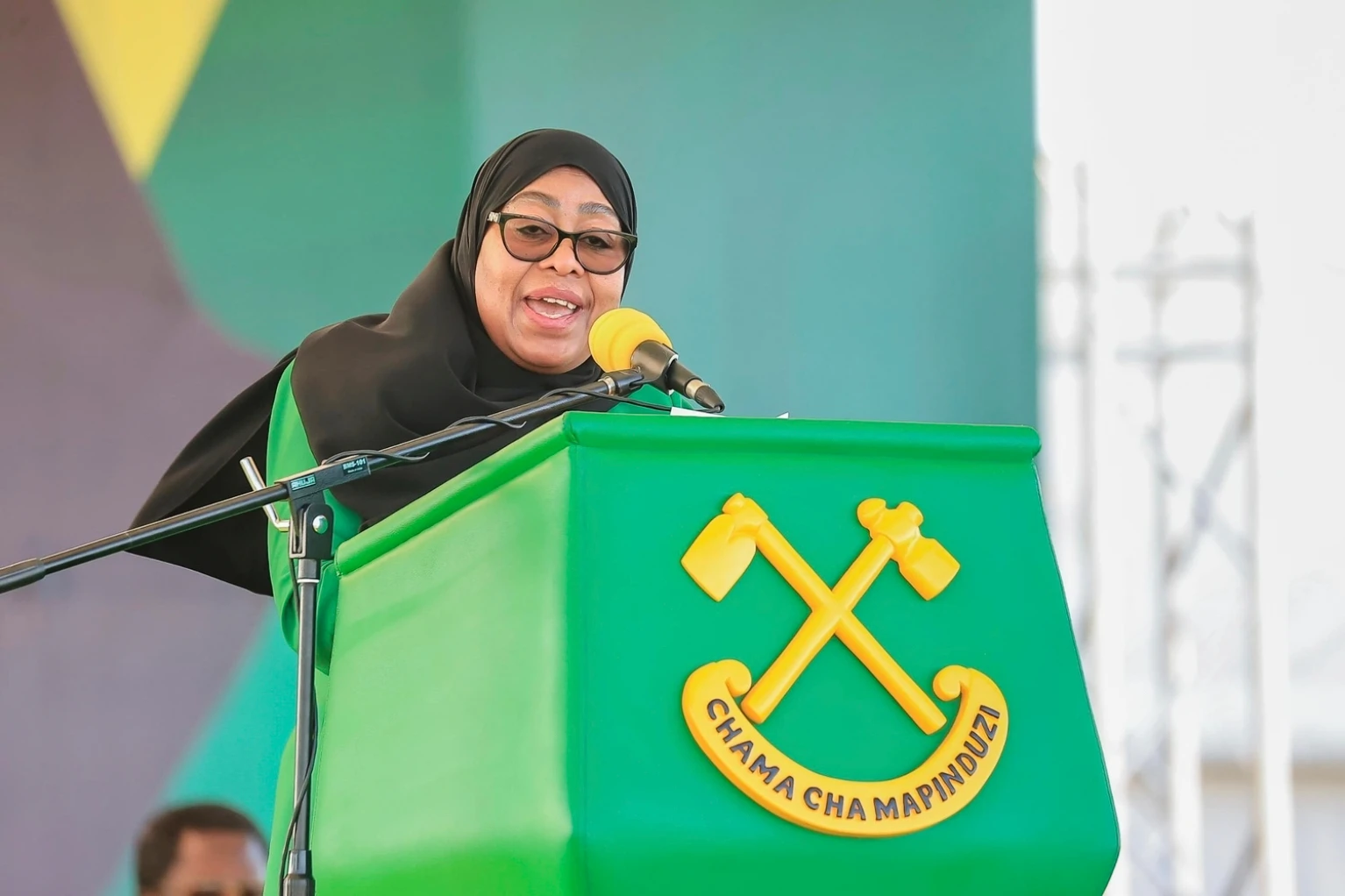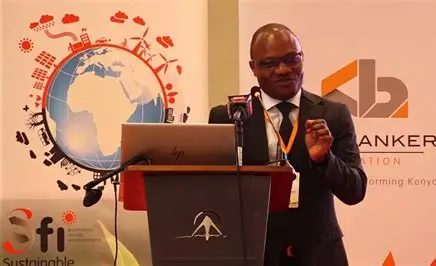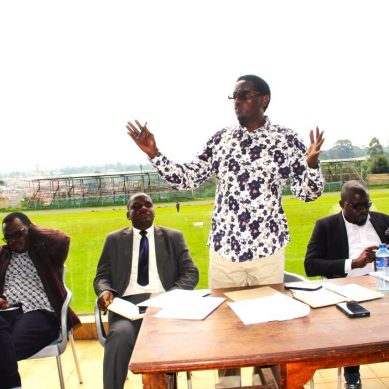
Cabinet Secretary for National Treasury and Economic Planning John Mbadi has unveiled a Ksh4.29 trillion government budget for the 2025/26 financial year.
While presenting the Budget Policy highlights and revenue raising measures for the fiscal year 2025/26 at the National Assembly Chambers, Mbadi said the budget focuses on stimulating economic recovery and creating jobs under the Bottom-Up Economic Transformation Agenda (BETA).
The cabinet secretary proposed an allocation of Ksh47.6 billion for various programmes in agriculture sector. Ksh8 billion has been earmarked for the fertilizer subsidy programme Ksh10.2 billion for the national agricultural value chain development project, Ksh800 million for small scale irrigation and value addition project, Ksh1.2 billion for food security and crop diversification project and Ksh5.8 billion for the food systems resilience project.
“The government will continue to transform the sector by increasing productivity in key value chain as fisheries and aquaculture, horticulture, food crops, livestock and rangeland development,” he announced.
The minister said further that the government will scale-up support to farmers through input financing subsidies and extension services to move the country from food deficit to food surplus, reduce reliance on food imports and revamp export crops.
In order to promote livestock production, the cabinet secretary further proposed, Ksh2.3 billion for de-risking, inclusion and value enhancement of pastoral economies programme, Ksh1.6 billion for Kenya livestock commercialisation programme and Ksh280 million for the livestock value chain support project.
He observed that, under BETA, there will be a roll-out of the fertiliser and seed subsidies to farmers across the country, which has boosted production in key food value chains and revived underperforming or collapsed export crops such as pyrethrum.
Since February 2024, the cabinet secretary explained that a total of 6.5 million registered farmers have benefited from the fertiliser subsidy programme. As a result of these initiatives, the cost of fertiliser has declined by 67 per cent from Ksh7,500 in 2022 to Ksh2,500 in 2025, while maize production has increased by 38.9 per cent from 61.7 million bags in 2022 to 85.7 million bags in 2024,” he said.
“This is a clear demonstration of the positive impact of our agricultural reforms towards food security and improved household incomes,” Mbadi said.
In order to secure the uptake of cotton production while providing alternative lint supplies for local apparel manufacturers, the cabinet secretary said that the Cabinet has approved the revival and commercialisation of Rivatex East Africa Limited, by on-boarding non-equity strategic partners.
On sugar sector reforms, he noted that the president re-affirmed commitment to ensure prompt payment of sugarcane farmers.
“The Government has also taken practical steps to deliver its promise to modernize the mills and transform struggling factories into productive, sustainable enterprises,” he noted.
Currently, he said, the four state-owned sugar factories, Chemelil Sugar Company, Muhoroni Sugar Company, Nzoia Sugar Company and South Nyanza Sugar Company (Sony) have been placed under competitive leasing arrangements. The initiative is expected to enhance efficiency.
In order to revitalise and maximise the benefits from cash crops, the cabinet secretary proposed Ksh2 billion for coffee cherry revolving fund, Ksh2 billion for coffee debt waivers; Ksh1.5 billion for sugar sector reforms; Ksh120 million for modernisation and revitalisation of cotton ginneries; and Ksh245 million for horticultural produce compliance enhancement project.
To further support local production and processing of edible oils, Mbadi proposed an allocation of Ksh300 million for the National Edible Oil Crops Promotion Project.
On milk processing, the minister proposed an allocation Ksh400 million for excess milk mop-up and Ksh150 million for modernisation of milk processing factories in Runyenjes and Narok.
The cabinet secretary noted that on custom measures and in order to meet the local demand of rice, Kenya was allowed to extend the stay of application on the EAC Common External Tariff and import rice at the rate of 35 per cent or $200 per metric tonne instead of the CET rate of 75 per cent or $345 per metric tons.
Mindful of wheat farmers in Kenya, EAC ministers also agreed on duty remission of wheat at a rate of 10 per cent instead of the CET rate of 35 per cent, provided the millers who intend to import wheat under the duty remission must first purchase locally produced wheat.
The total expenditure in the 2025/26 budget is estimated to be Ksh4,291.9 billion equivalent 22.3 per cent of gross domestic product. Of this, recurrent expenditures will amount to Ksh3,134.4 billion equivalent to 16.3 percent of GDP.
- A Tell Media / KNA report / By Wangari Ndirangu








